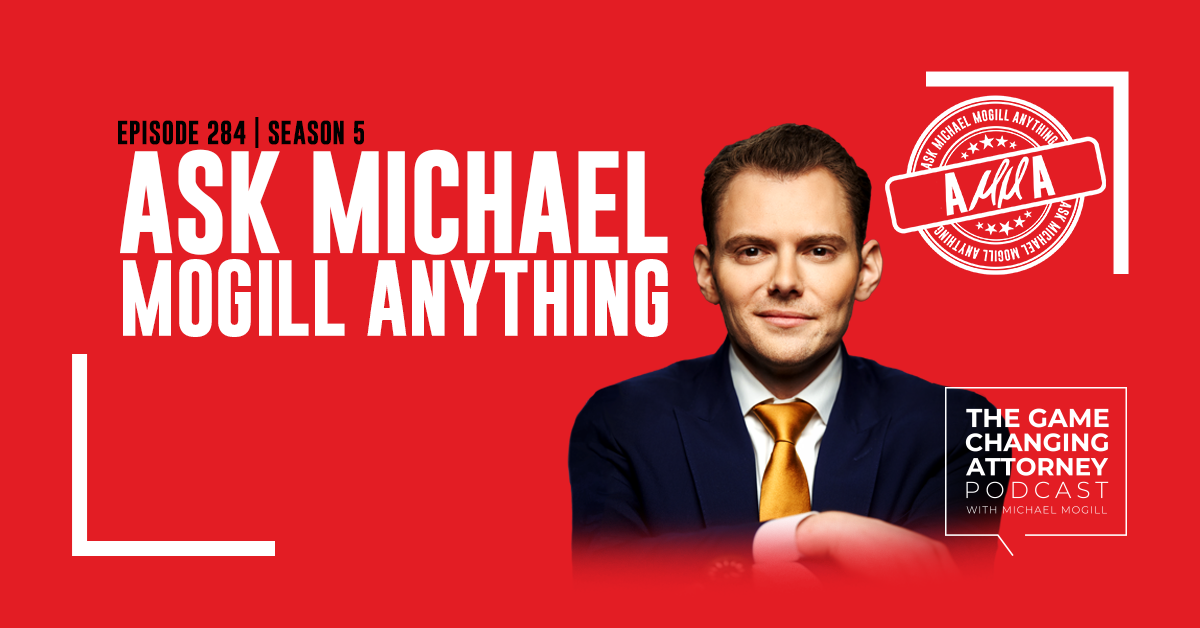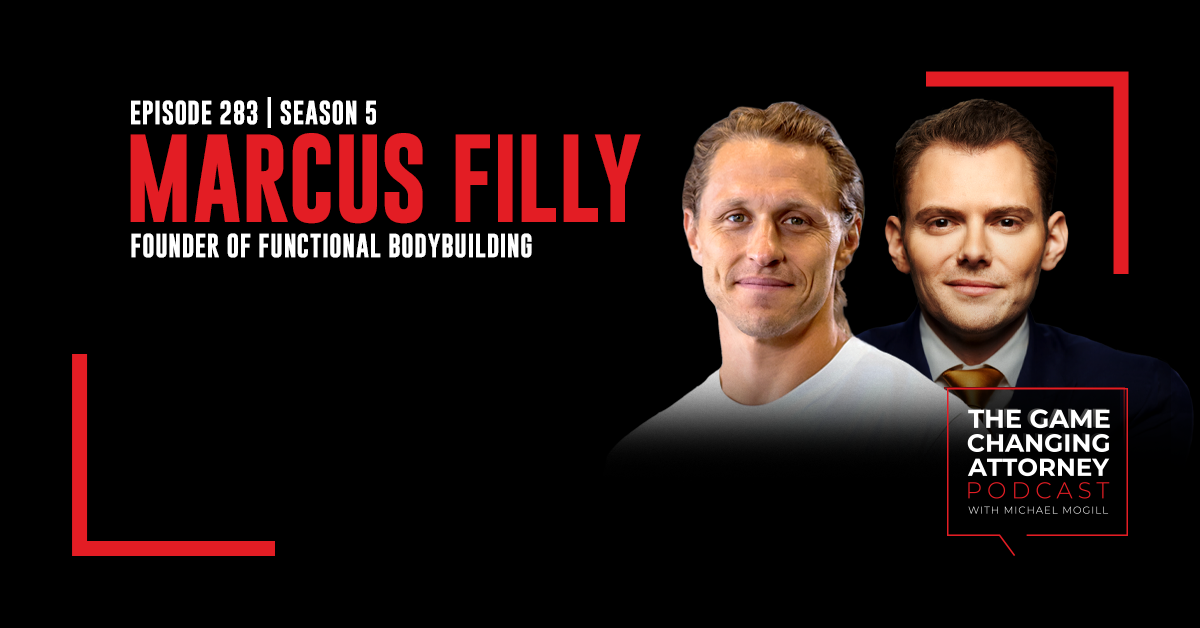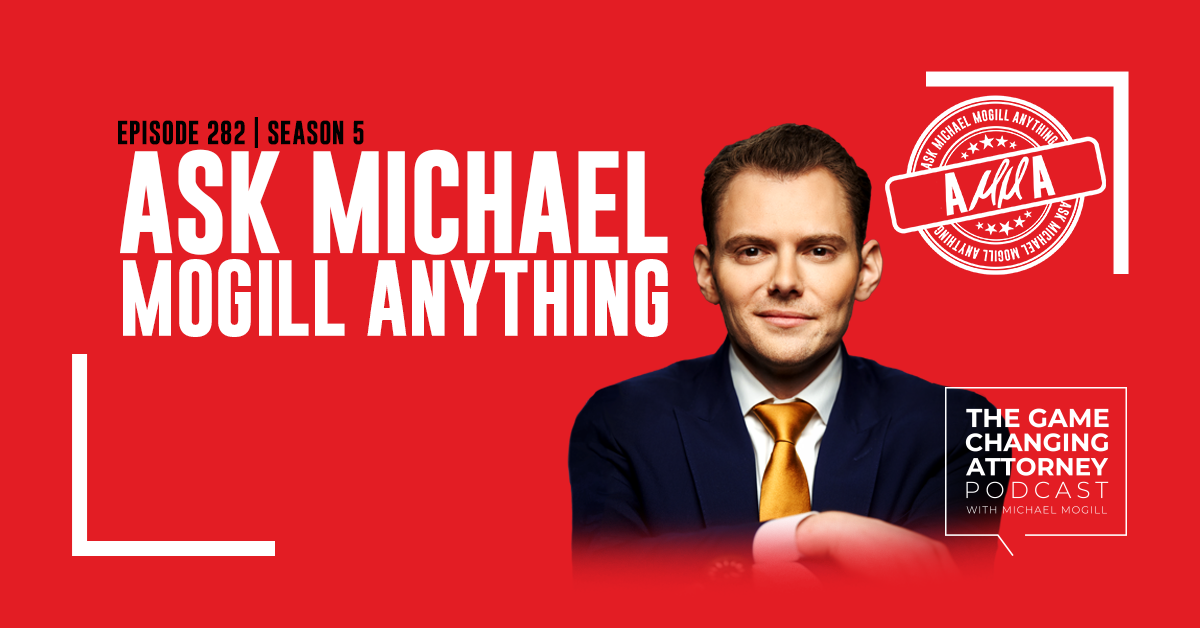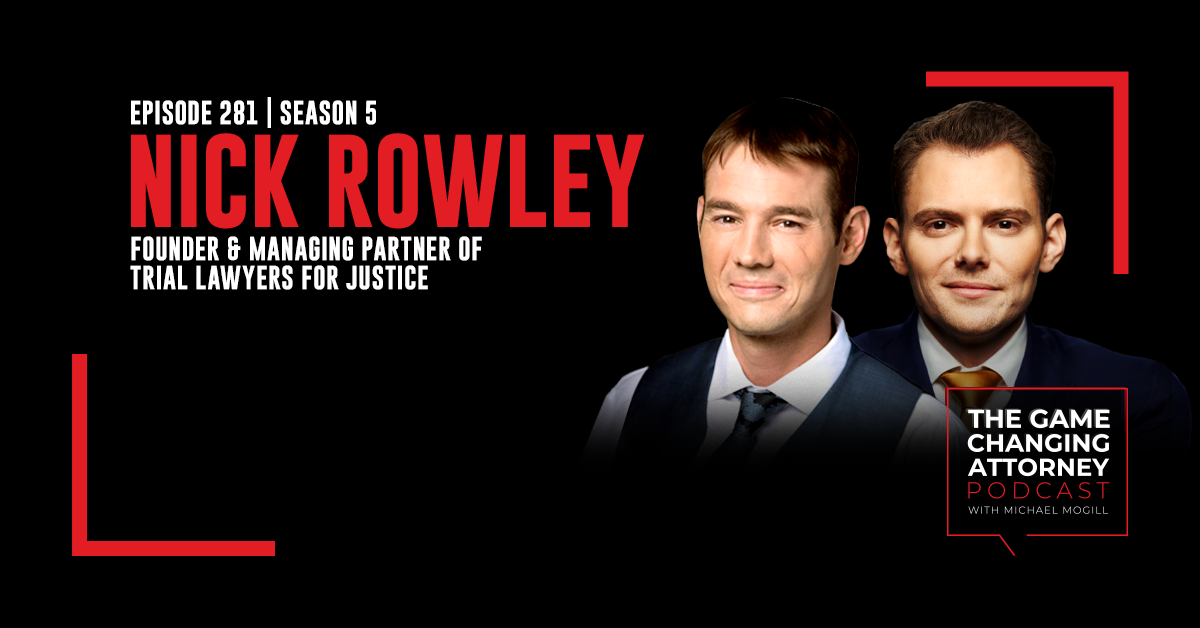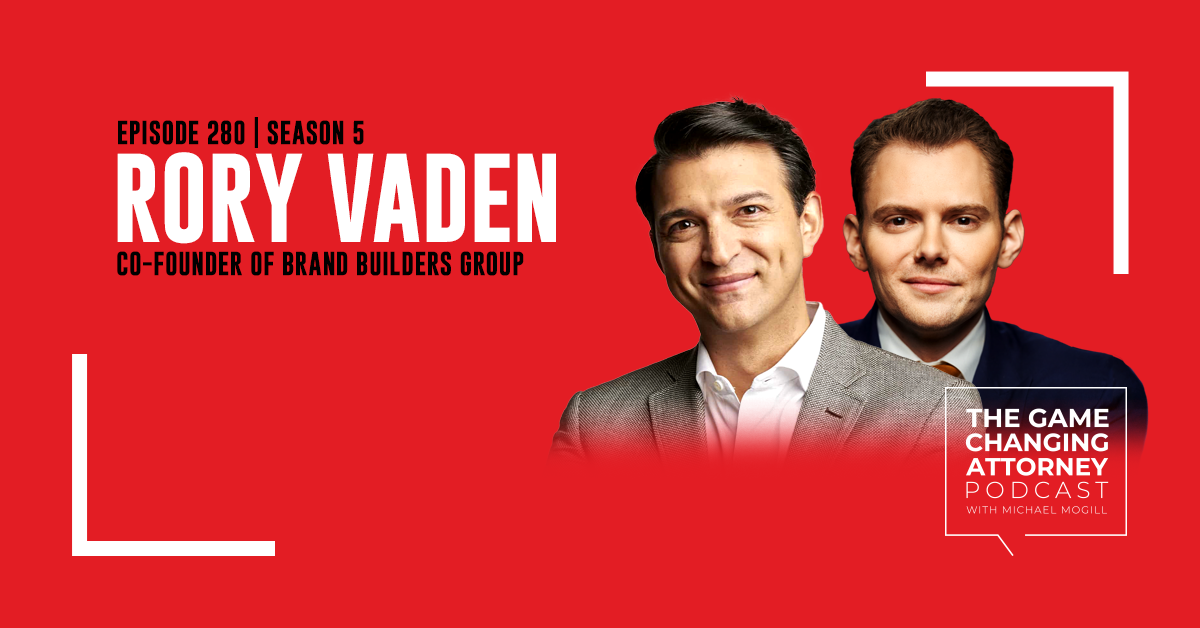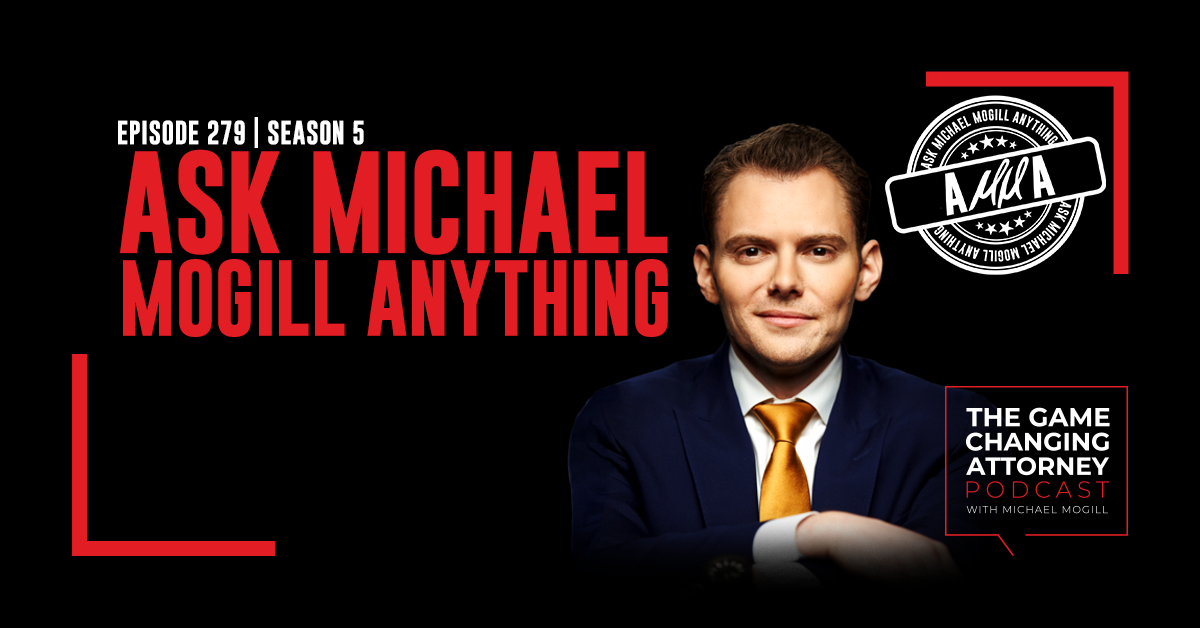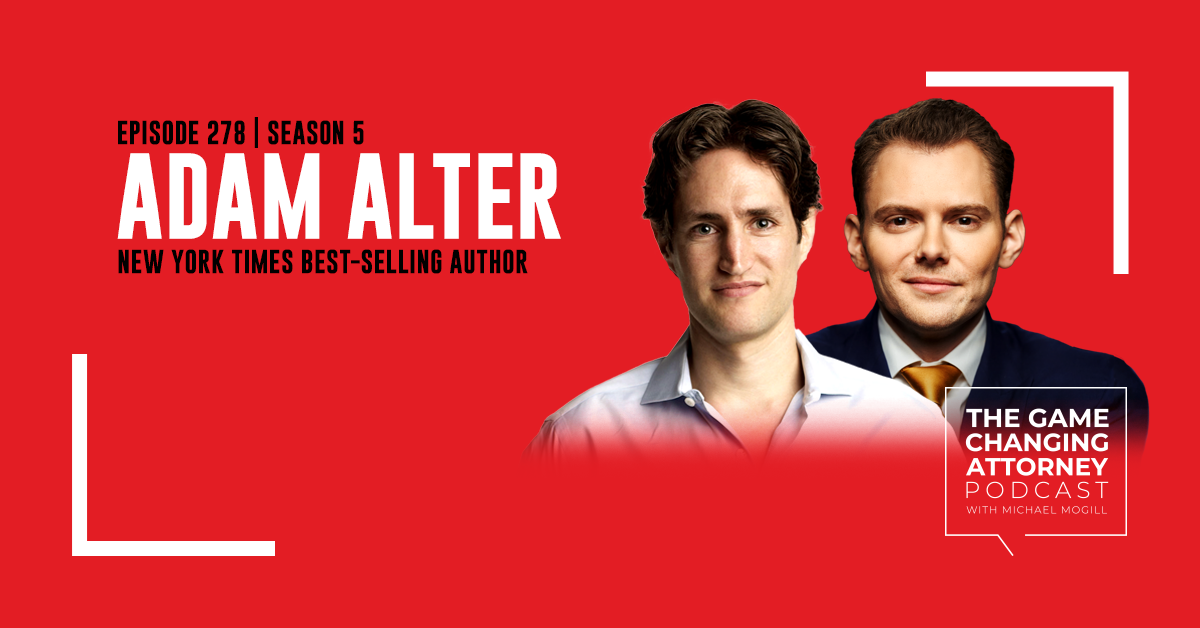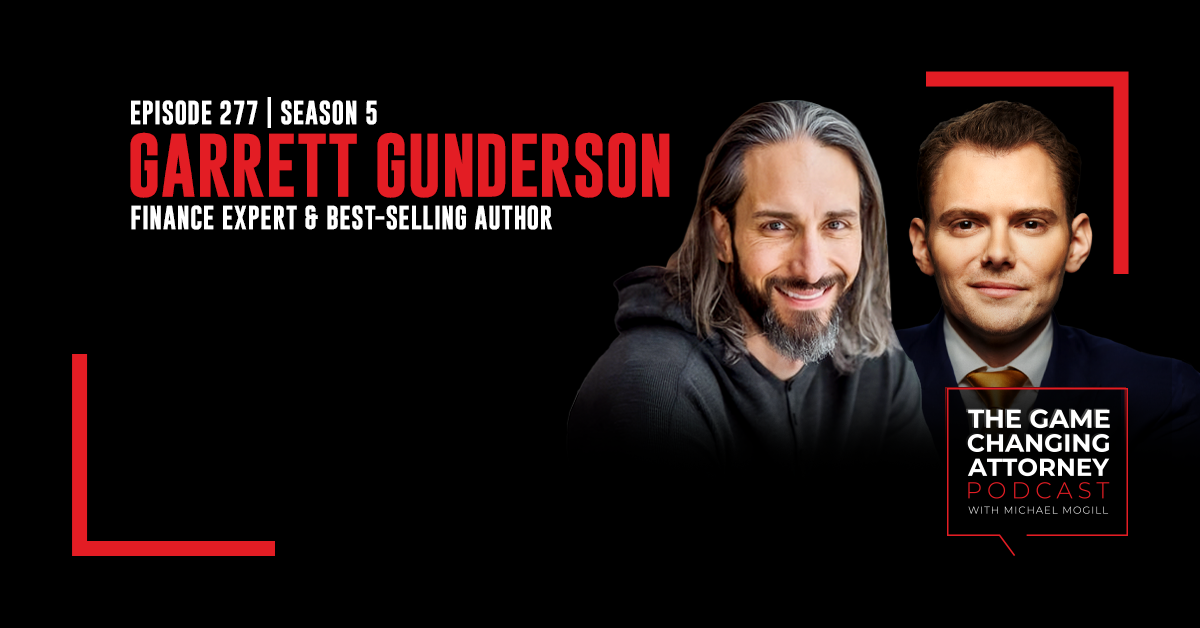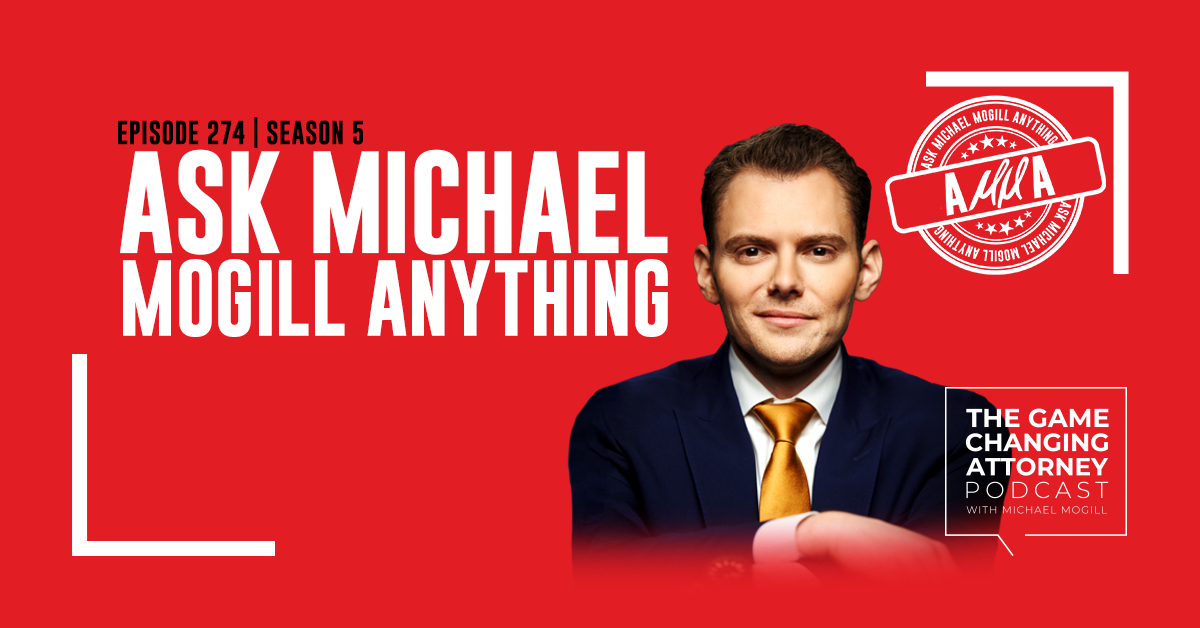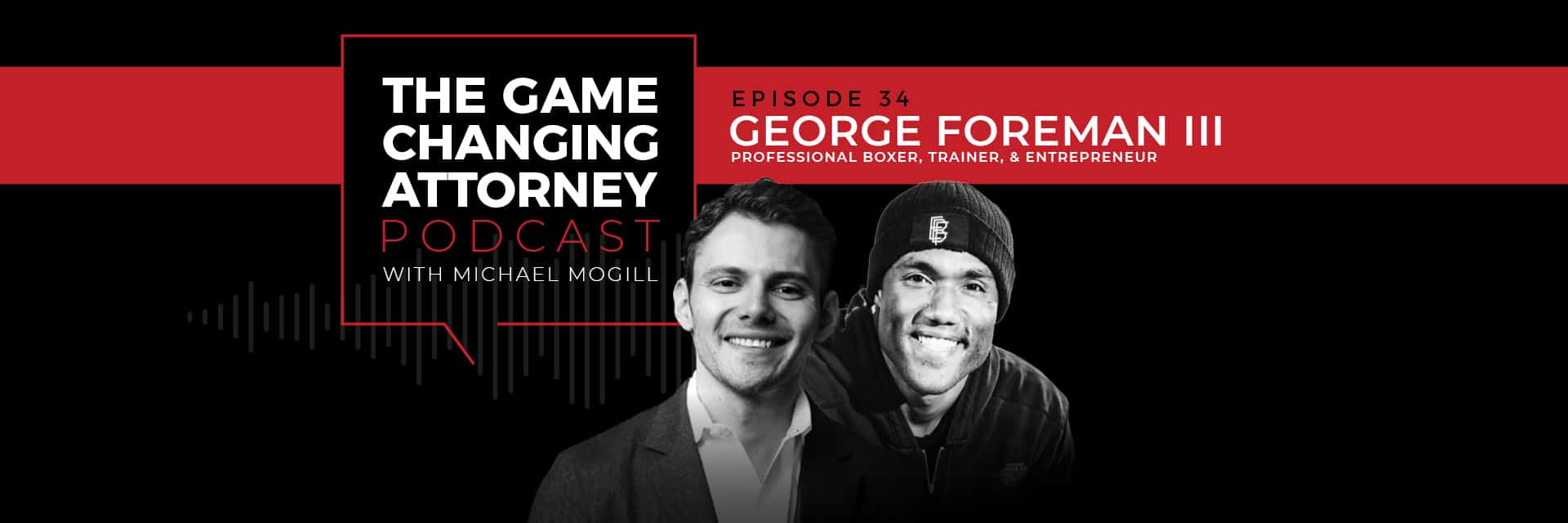
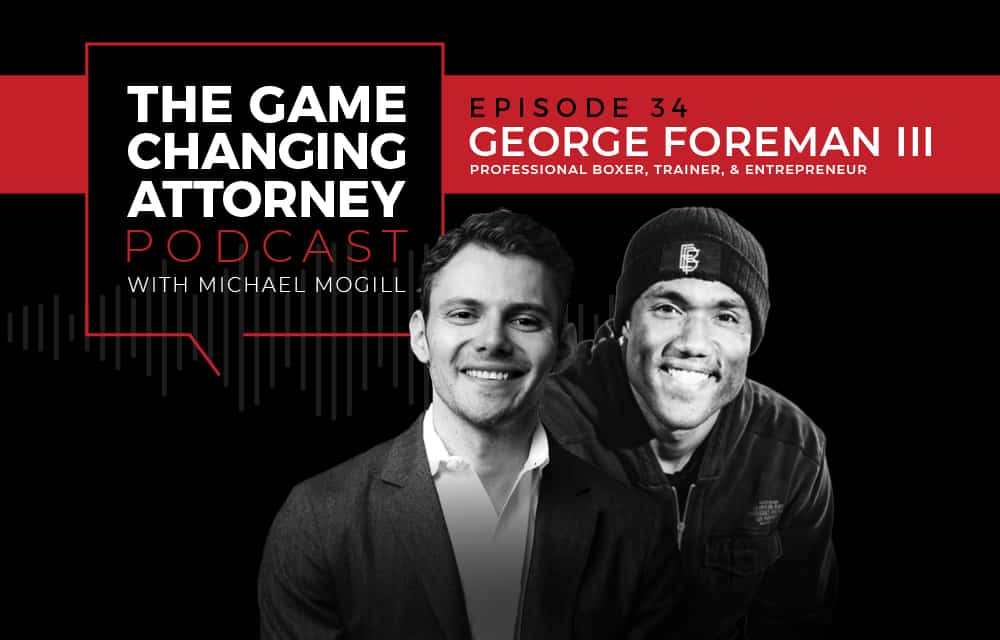
EPISODE 34 — George Foreman III — The Fighter’s Mentality
Failure is not in George Foreman III‘s vocabulary. He’s an undefeated pro boxer (who retired with a perfect 16-0 record), trainer, fearless entrepreneur — and yes, son of two-time heavyweight champion George Foreman. He attributes his entrepreneurial prowess to the lessons he learned training and fighting to win.
In this episode, we hear George Foreman III’s incredible success story: dedication, sacrifice, and a relentless work ethic. Plus, we discuss ways to leverage the fighter mentality both in business and in life.
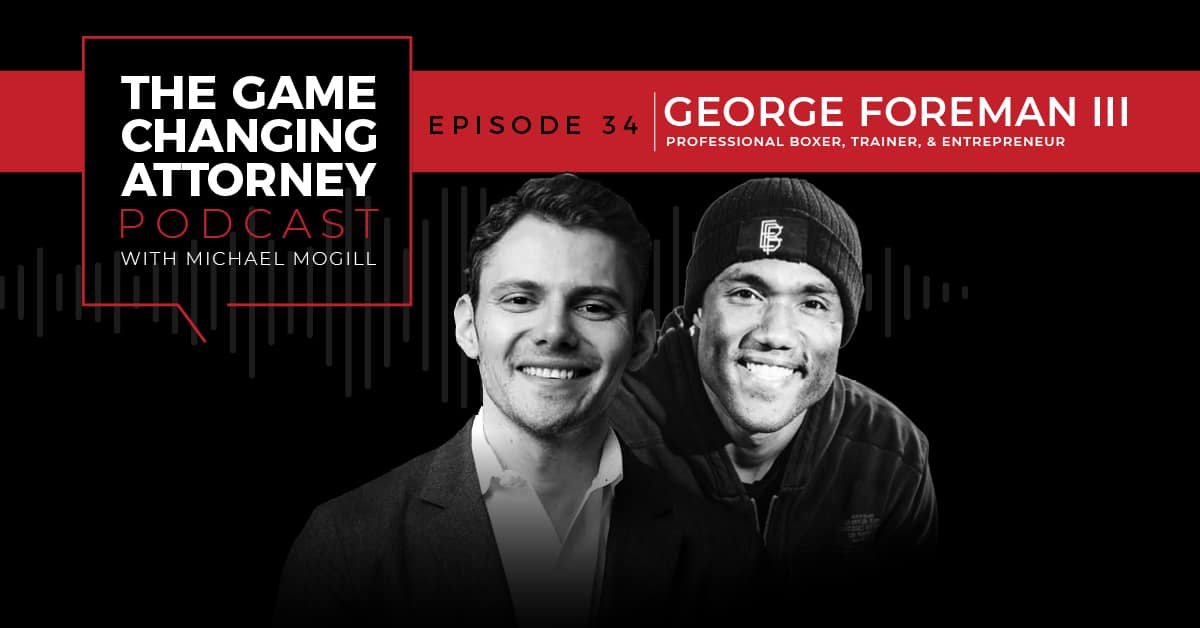
Listen & Subscribe
Show Notes:
5:10 – Realizing the legacy of his father. “By the time I started to understand who my dad was, he had mounted another comeback because he had spent all his money on our youth center and divorces. So, he said, ‘Look, I either go bankrupt, I sell the youth and community center, or go back to boxing.’ So he said he’s going back to boxing. I’m six at the time, and by the time I realized he was a professional fighter, I was seven because he was on TV and someone told me. My point is, he comes back and fights one of the top contenders when he’s 37, and knocks him out in two rounds — Jared Cooney. Everybody said this guy is a monster. Then when he was 41, he took Evander Holyfield 12 rounds and almost knocked him out, but he lost that fight. So, I grew up in a household with one of the most feared fighters of all time with the highest knockout percentages of all time, but also a preacher, and who was my spiritual leader and went to church four days a week.”
7:49 – What made George Foreman so successful? “The work ethic. He was touted as this strong punching power and all that, but if you actually watch his fights, especially in the early days, he wasn’t typically the aggressor — like, physically moving towards the person. He would always be backing up, but when you came towards him, he hit you really hard, which means he had perfected his defense. So, the story of him was this work ethic. He used to get really upset because people would say, ‘Oh, you know he’s just got great knockout power. He’s a one punch guy, and he can’t really box,’ but he’s like, ‘I worked so hard!’ It’s like LeBron working so hard at his game, that he doesn’t need to do anything fancy. He can’t just dribble down the court, jump and dunk it, right? You have to practice, you have to be in shape, you have to have timing, you have to have speed, you have to be sleeping — you have to do all these things, to just make it simple.”
11:45 – GF3 decided to get in the ring. “I was in my mid 20s and had been working for my dad, managing him for almost five years. At the time, I was gaining a lot of weight and wanting to lose weight. So I was like, ‘Let me try something new as a way to motivate me to get in shape. I’ll try boxing.’ I called my brothers up, and they teased me saying that there’s no proof that I was ever a varsity athlete because I went to boarding school and they had never seen me play sports — that was actually a big motivator for me to box. So I said, ‘Look guys, if I have one amateur boxing match, will you guys shut up?’ And they agreed. That’s how it all started.”
13:00 – George Foreman trains George Foreman III. “Other amateurs wouldn’t fight me because typically, when you have zero fights you fight someone else with zero fights, but they’re like, ‘Why in the world would I have my fighter’s first fight against George Foreman’s kid?’ So then [my dad] was like, ‘Well, why don’t you have a pro fight because at least you know the person is actually going to show up for the check.’ So, I agreed, and he said, ‘Okay, well if you’re going to fight pro, you’ve got to let me train you. We’re going to train for six weeks, and you’re going to have to fight.’ Six weeks turned into six more weeks, and he just kept on going. Once he influenced me to have that fight, he didn’t want to be the reason I got hurt. And so he’s like, ‘I gotta watch him.’”
19:41 – What he learned from fighting. “Take your losses in the preparation. During preparation, take your losses there. I won those fights, but the reason I won those fights is because I took my losses in the gym. I took my losses in the morning when I was running. All my losses were in preparation, and the more I took my losses there, the more likely that I was prepared for the stuff you can’t prepare for. You have to make adjustments, but you need competence to make adjustments. I’d say that’s what it was all about.”
27:55 – The privilege of thinking ability. “I think the ability to not get tired, to recover when you try things that maybe didn’t work, the ability to be resilient and get up off the canvas if someone knocks you down — all these things give you this ever-so-precious thing. It’s a privilege, thinking ability. I don’t care how smart you are, or how intelligent you are — if you can’t breath in and say, ‘Let me take a break. Let me sit in here, defensively, and think about what I want to do. Let me try this — that didn’t work, so try something else.’ If you can’t sit and do that and then remember what worked and optimize on top of it because you’re tired, discouraged, scared, or insecure because you didn’t prepare — if you can’t walk in every round of that fight and have your thinking ability, then you’re just not going to win. It doesn’t matter how smart you are.”
31:38 – From boxing to business. “I think in business, I think about, ‘How can I isolate and remove variables — the strengths of my opponent or my opposition — how do I isolate those? Once I’ve figured that out, then we can have fun and be special.”
42:47 – The mega-success of the George Foreman Grill. “So, the grill went on to be the most successful houseware appliance on QVC. It was the first time that QVC sold a million of anything. By the time it was 2003, the iPod was just hitting. I remember we had sold more grills than iPods — that was a big claim of fame. Now, it’s sold over 150 million units. We assume it’s somewhere between 70 to 80 million unique people have purchased a product, a pay-per-view, or something. He built that audience himself.”
47:26 – What does being a game changer mean to you? “I think all game changers have one thing in common: they get excited about conflict — like geeked up. I mean, it’s never fun. You can be upset and all that, but they look forward to conflict because they figured out how to grow from it. Their relationships might get stronger. Their understanding might get better. They don’t see things as a zero-sum game. I think being a game changer is about not just resolving conflict, but creating growth for all parties involved out of conflict. Conflict could be your muscle tension. Conflict could be an argument with your child or your wife, a disagreement. Can we get better at talking through these things or handling these things? Can we actually get better at the process of resolving these conflicts? It’s called growth. People are no longer afraid to be honest with you in an organization. So, I think not just conflict resolution, but using conflict as a platform to improve relationships and improve performance. That’s what a game changer does.”
EPISODE RESOURCES & REFERENCES
George Foreman
1968 Olympics
Muhammad Ali
Fight of the Century (Joe Frazier vs. Muhammad Ali)
Ken Norton
George Foreman Youth and Community Center
Gerry Cooney
Evander Holyfield
LeBron James
Lennox Lewis
Emanuel Steward
Thomas Hearns
Wladimir Klitschko
The Crystal Cathedral
ESPN
Houston Independent School District
Dave Chappelle
Floyd Mayweather
Sugar Ray Robinson
Michael Jordan
Kobe Bryant
George Foreman Grill
The National Enquirer
Nike
Oscar Mayer
KFC
Baskin-Robbins
McDonald’s
Tommy Morrison
Don King
Clydesdale horse
Mike Tyson
USA Network
Connect with Michael
- Text directly at 404-531-7691
